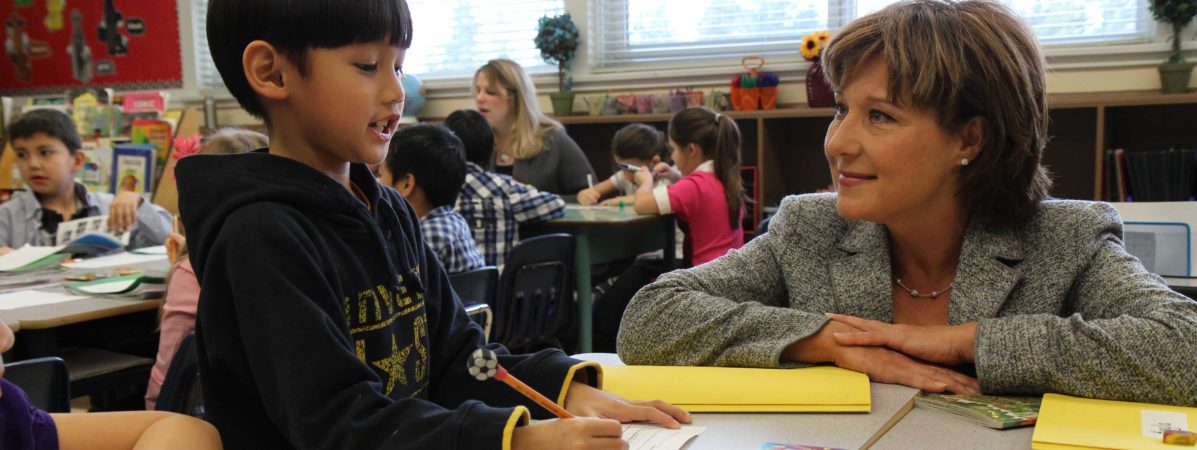
Teachers are no exception. Within the teaching profession, educators are constantly learning thanks to massive open online courses (MOOCs), professional learning networks, and open educational resources, just to name a few.
Despite the vast array of opportunities available, many schools only recognize traditional forms of professional development.
We believe it is time to start recognizing and rewarding educators for their personal learning and encourage the pursuit of unique professional development pathways, and we’re building a micro-credentialing system to do exactly that.
Digital Promise is leading the charge to make micro-credentials a viable option for teachers by building an ecosystem of educators and partners to identify, recognize, and reward innovative teaching practices with competency-based micro-credentials.
We are also designing a series of micro-credentials for teachers and establishing an online platform to develop, assess, and share these credentials as digital badges.
Digital badges may look simple on the surface, but they are chock full of information thanks to metadata baked into the badge—who issued the badge, when and how the badge was earned, and the work submitted to earn the badge.
Because digital badges are open, anyone can see the skills and competencies demonstrated by the earner. That means teachers can use micro-credentials to demonstrate expertise to potential employers, build identity and reputation within learning communities, and create pathways for continued learning and leadership roles.
Micro-credentials are designed to be granular. They focus on mastery of a singular competency, and allow teachers to build custom learning portfolios by stacking badges that meet their needs or goals.
Our inaugural series of micro-credentials will focus on Deeper Learning principles, such as productive teamwork, design thinking and doing, and idea generating and brainstorming. Every micro-credential has specific requirements—artifacts such as a annotated classroom video, student work, or unit plans—that, taken together, demonstrate the specific competency. Expert and peer review ensures the micro-credentials are rigorous, so that they will ultimately have market worth within schools, districts, and beyond.